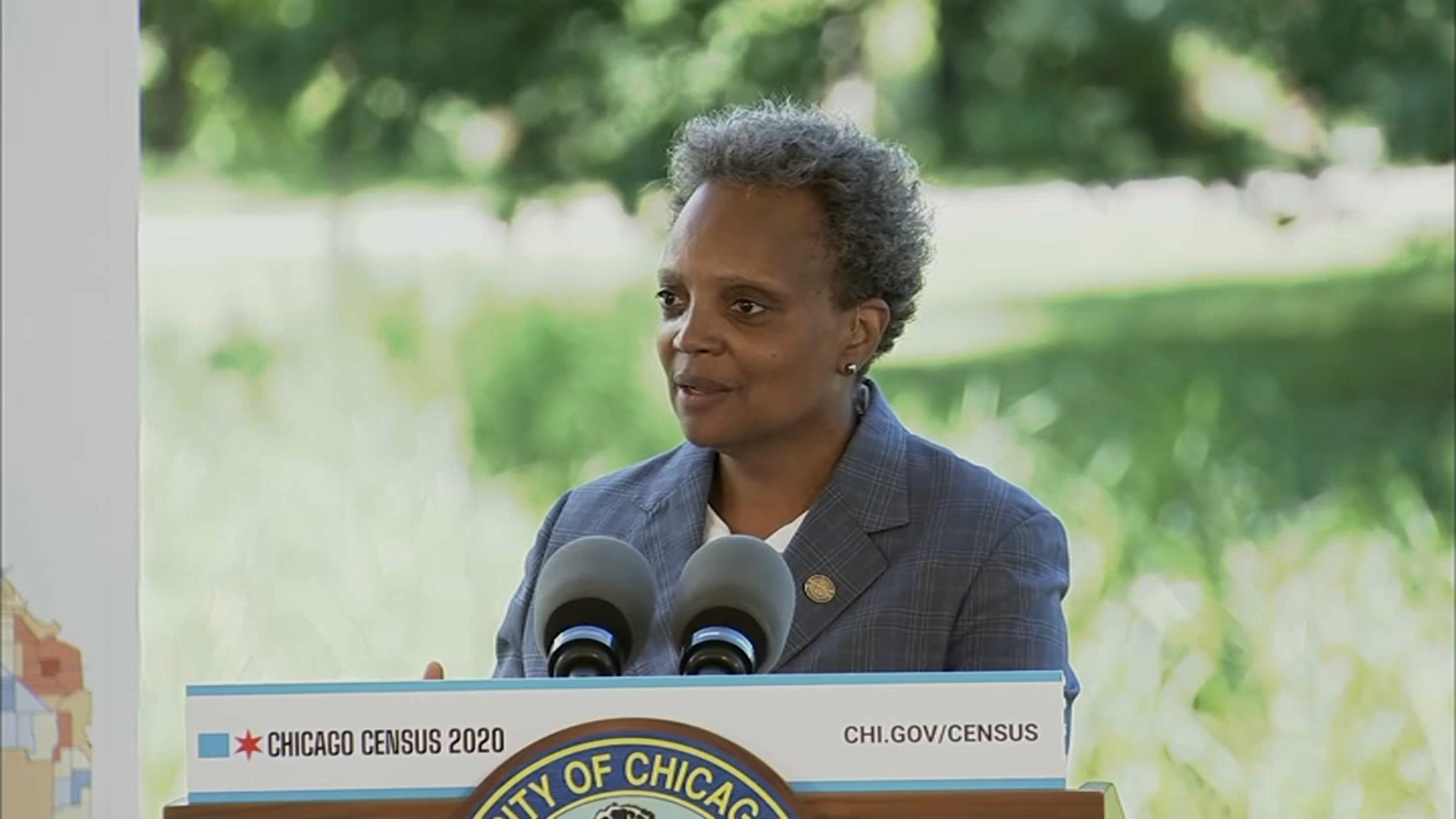Chicago Mayor Lori Lightfoot said Wednesday that the city is "dangerously close" to reversing course on some of the progress made in battling the coronavirus pandemic.
"Right now we are on the precipice. We are dangerously close to going back to a dangerous state of conditions," Lightfoot said during a news conference alongside Chicago Department of Public Health Commissioner Dr. Allison Arwady.
Lightfoot has said in recent days that she will not hesitate to reimpose some of the restrictions put in place in the earlier months of the pandemic should coronavirus cases and metrics continue to rise - a point she reiterated on Wednesday with a strong warning.
"Some of you have joked that I'm like the mom who will turn the car around when you're acting up. No friends, it's actually worse," Lightfoot said. "I won't just turn the car around. I'm gonna shut it off, kick you out and I'm gonna make you walk home. That's who I am. That's who I must be for you and everyone else in this city to make sure that we continue to be safe."
"I don't want to be that person if I don't have to - but I will if you make me," she continued.
Arwady said 192 new cases were reported in Chicago on Wednesday - far below the pandemic's peak in early May when the city added more than 1,000 new cases per day. But she noted that that number needed to keep declining for the city to continue moving forward, per guidance from the Centers for Disease Control and Prevention. Should cases rise, as they have in other parts of the country, health officials would then consider reimposing restrictions.
"We'll start thinking about pulling back if we need to once we're over 200," Arwady said. "There are other things that play in there: how fast are we seeing a rate of increase? What's happening with percent positivity? Are we seeing any impact on the healthcare system?"
Both she and Lightfoot have highlighted in recent days that most of the new coronavirus cases reported in the city are in residents between the ages of 18 and 29 years old - a point they repeated Wednesday.
They issued a warning to young people in particular to continue following public health guidance: avoid large gatherings and wear a face mask at all times when outside the home.
"We've got to continue to do the right things. If you are a business, we're not afraid to shut you down and we've proven that. So please step up and do the right thing. Follow the guidance that you know is in place to keep your workers, to keep your customers and to keep you safe," Lightfoot said, noting that she did not want Chicago to see a spike in cases like some states in the South and West regions of the U.S. have in recent weeks.
"I certainly don't want to be like other places of the country where we're shutting down commerce and businesses again," Lightfoot said.
"We fully recognize the hardship that this has placed on everyone. But if we must, we must. And it depends upon each and every person to do the right thing. Because the problem isn't just that you're hurting yourself, the problem isn't just that you're hurting people in your network. You're hurting the whole city," Lightfoot said.
Many industries in Illinois were shut down almost entirely beginning in mid-March as cases began to climb in the state. Restrictions have been gradually lifted in a phased reopening framework, with Chicago entering phase four on June 26, allowing indoor service in a limited capacity at bars and restaurants, among other changes.
"If we continue to see this uptick in cases, we're going to have no choice but to go back into phase three," Lightfoot continued. "That means shutting businesses down, that means imposing more restrictions on your mobility. No one wants to go back there. But we will have to go back there if people continue to ignore the public health guidance."
More than 400 new cases per day would be the point where the city would want to reinstate restrictions and potentially return to phase three, Arwady said.
"If we get to a point where we are up to 400 cases per day that's the equivalent of where the states are that we are requiring quarantine for our visitors," Arwady said, noting the city's emergency travel order requiring people entering Chicago or returning from several states to quarantine for 14 days. "It's the equivalent of needing to go back to a phase three really pulling back on major activities."
"So folks, this is our moment of reckoning," Lightfoot said. "This is our moment of whether we're going to do the right thing in our city. It is going to determine whether businesses can stay open. It is going to determine whether or not we continue to have some semblance of a normal life. I hope that the answer is yes but it's up to you."
Both Lightfoot and Illinois Gov. J.B. Pritzker have repeatedly stated in recent weeks that they will not hesitate to move Chicago and the state back a phase in their respective reopening plans if health officials deem it necessary.




